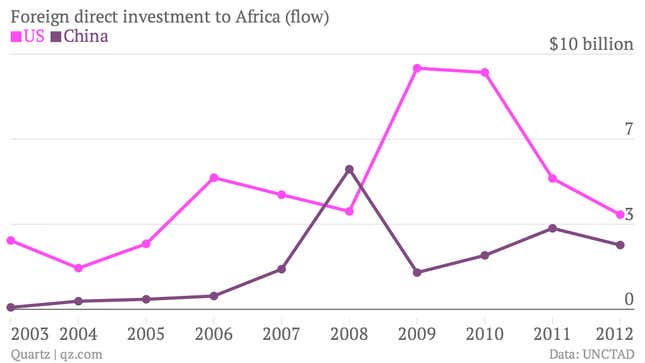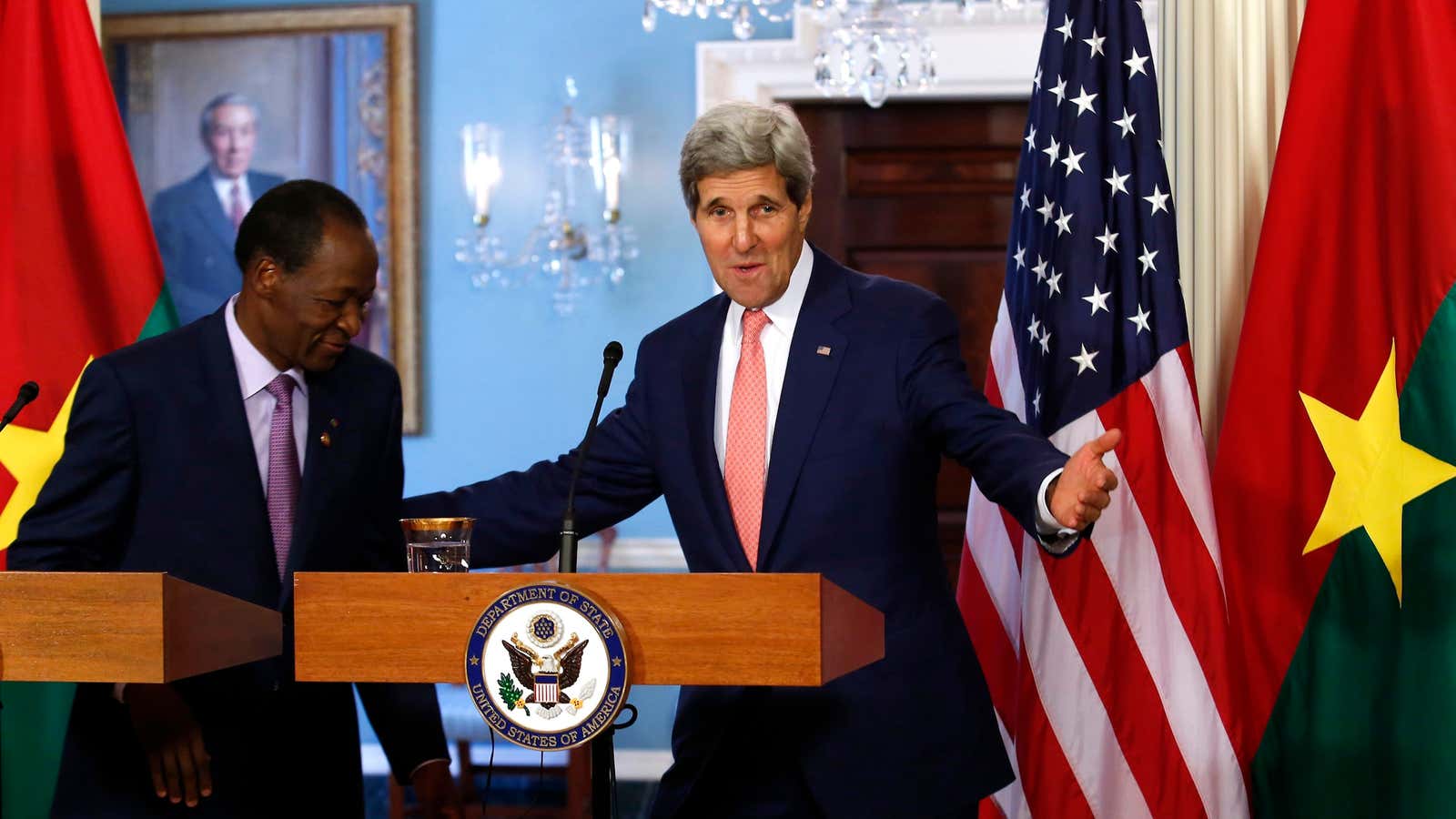This week, US president Barack Obama is hosting an impressive array of African heads of state, business leaders and American corporate chiefs at a Washington DC forum aiming to strengthen business ties with the continent. He’s expected to announce $14 billion in American corporate investments in everything from construction to IT in Africa.
The significant uptick in American investment in Africa isn’t likely to outdo the deluge of cash coming from China.
Evaluating just how much China’s businesses and government have invested in Africa is tough, especially given the opacity of Chinese government dealings. Though the US still leads in UNCTAD’s tallies of direct investments in Africa, that’s declining. One study estimated that China invested as much as $75 billion in unrecorded projects alone from 2000 to 2011. That would boost the figures below from China dramatically:

China’s FDI has grown at about 53% a year since 2001, compared to 14% for the US. Less than 1% of US FDI investment goes to Africa, and $14 billion won’t do much to change that. By contrast, China invests 3.4% of its worldwide FDI stock in Africa. Its massive investments in infrastructure dwarf US efforts.
Since China surpassed the US in 2009 to become the continent’s biggest trading partner, the gap has only grown. Last year, the US had about $85 billion in bilateral trade with Africa; China reported more than double that with $210 billion.
China also beats the US in commercial envoys; it has commercial attachés in 54 African countries, compared to the US commerce department’s eight. China is also making massive investments in infrastructure. The ongoing summit is the largest such event ever held in the US, but seems conspicuously late.
The US claims its increased investments will do more to help African economies than China’s resource-extracting efforts. Either way, for now the investment race is paying off for the continent; its growth rate is expected to hit 5.2% this year, up from 4.7% in 2013.
